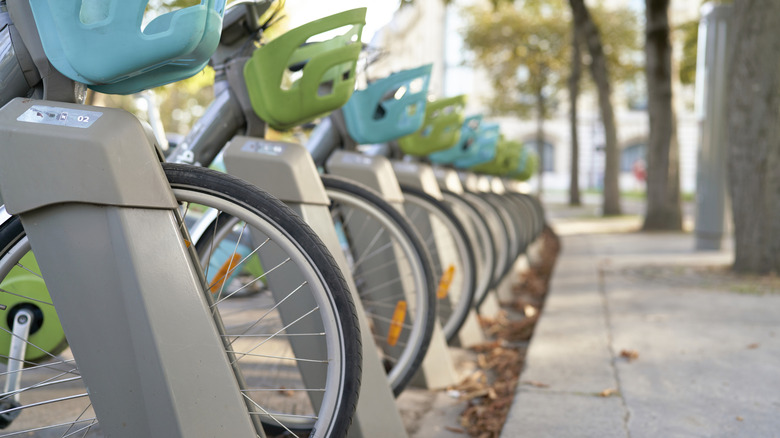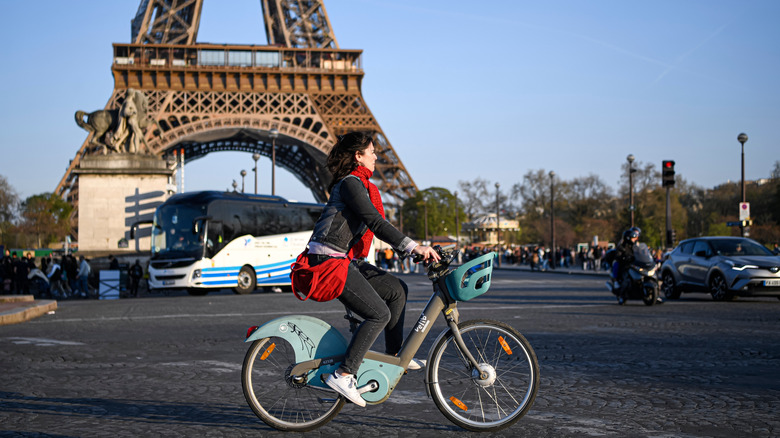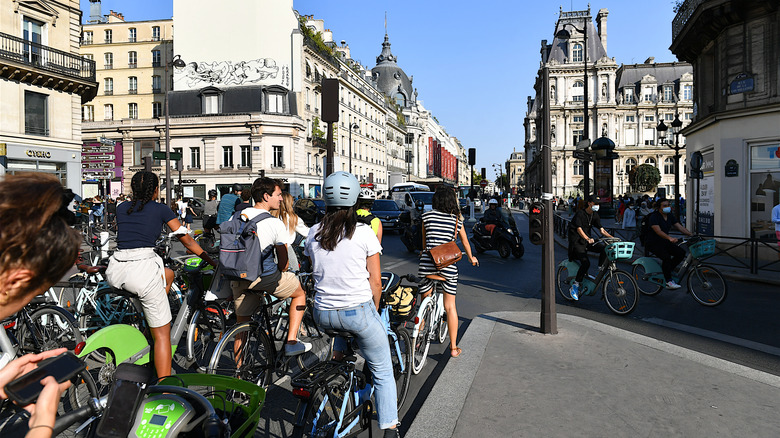Parisian cyclists have formed a community with its own codes and small courtesies. Biking around is one of the best ways to experience the city like a Parisian, and the extensive rentable bike system is an affordable and practical option to get rolling. Word to the wise, when you are picking your wheels at the docking rack, you’ll want to skip any bike that has its seat turned backward. European travel expert and TV host, Rick Steves, explained what this symbolizes. “Remember that a seat turned backwards indicates a broken bike,” he wrote in a blog post on his website. This simple but clear visual cue indicates that the previous rider found something wrong with the bicycle and is kindly flagging it for the benefit of future users and the maintenance crew.
The City of Light features more than 620 miles of cycling lanes, and the bike-share network known as Vélib’ offers both traditional (blue) bikes, and electric-assisted (green) bikes. Within the city limits there are more than 20,000 rentable bikes, of which 40% are electric. Velib’ promises that wherever you end up on your Parisian explorations, you’ll never be more than 330 yards away from their nearest docking station. Lime and Dott e-bikes have also become available to rent, so there’s no shortage of opportunities to explore the city on two wheels.
Should you turn your rentable bike’s seat backwards?
Cycling is not only an environmentally friendly way to cover a lot of territory if you are on a budget, it is also such a fun thing to do on a solo trip to Paris. A single-use Vélib’ ticket starts at $3.40 (at today’s exchange rate), which allows 45 minutes of use of a blue or green bike. Additional time is charged at $1.13 for the next 30 minutes, and $2.60 for each additional half-hour after that. Even more affordable are the day passes at $5.70 for 24-hours for a regular bike or $11.30 for an e-bike, or the three-day pass at $20 for both blue and green bikes.
Similar to single tickets, day passes also have a time-limit per ride, which varies between 30 to 60 minutes depending on the type of bike and pass duration, before additional charges apply. Day passes have an advantage, however, in that as long as you pass is still valid, you can simply return your bike before the initial time limit, and check out a new one to reset the clock and avoid extra fees. Occasionally you may find that your new fresh bike has a flat tire, a seat that won’t adjust, or brakes that don’t feel quite right. Not to worry. Simply return your bike and grab another, just remember to flip the seat backward. Your thoughtful gesture will save the next user some time and aggravation. Congratulations, you are now part of the growing Parisian cycling family.




